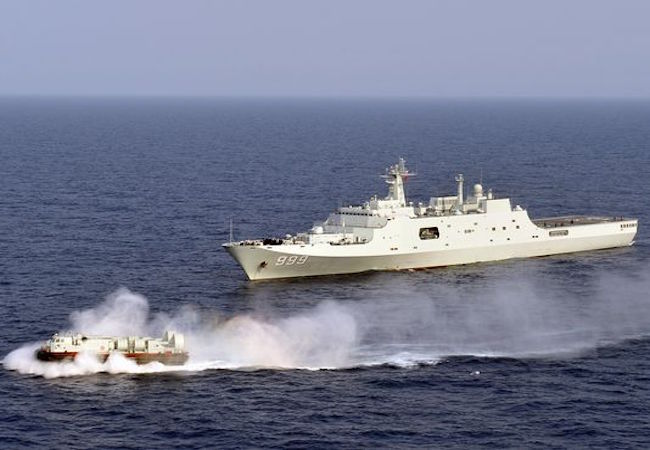
By Muhammad Waqar Anwar
The South China Sea (SCS) is one of the most important regions of the world. The bulk of world trade passes through the Strait of Malacca, which now constitutes a strategic choke point. So, all the countries that have a stake in maritime commerce are concerned about the safety and security of the transit of goods. The shift in US policy in 2010 which is generally known as the ‘Pivot to Asia’ has led to a renewed importance being given to the SCS, as the rebalancing policy included a military component as well. The US announced the shifting of 60 percent of its naval firepower to the Asia Pacific. This has added a strategic dimension to the importance of the SCS.
Certain recent developments in the SCS have once again brought the issue into the limelight at the international level. The intense land – reclamation activity on the islands within the last two years by China in a determined manner and the subsequent US response, has produced new ripples in the already turbulent waters of the SCS. China has been constructing hangars, airfields and other military infrastructure at a very fast pace. The Trump administration had initially taken a hard stance on the issue but soon afterwards the tone softened, and it seems that the president’s hands are currently tied as he seeks China’s help on the North Korean issue. Media projections backed by US and Australian think tank reports often portray the Chinese constructions in an exaggerated manner, which is quite opposite to the ground realities. These can best be regarded as futuristic predictions.
In addition to China and the US, India is also showing an interest in the SCS sea, especially after the shift in its ‘Look East Policy’ to the ‘Act East Policy’. Indian policy experts are concerned about the rise of China, and argue for India’s role as a regional balancer. Indian strategic and security interests are primarily driven by its energy security as manifested by the naval exercises conducted with the SCS littoral states.
The recent upsurge in tensions is ringing alarm bells in littoral southeast Asian states. Recently, China has intensified its influence over the Southeast Asian countries, including American treaty allies Thailand and Philippines. The Trump administration now faces the tough task of regaining the lost ground. The SCS dispute and Trump’s Asia policy were the focal point of the recently held ASEAN foreign ministers meeting on February 21, 2017. The ministers expressed their grave concern over the ‘unsettling’ militarization of features in the sea, but fell short of blaming China. Unlike the Obama administration, the Trump administration has so far left the ASEAN in the cold, while focusing on Japan and North Korea. In order to maintain its role as the bedrock of regional integration and security architecture, there seems to be a scramble in the regional group in order to work out a unified and coherent stance on the SCS, lest it should slip into strategic irrelevance. But, the ASEAN response to the major power rivalry has been not unified.
According to the international maritime expert Valencia, cracks between the US and Southeast Asian nations have been growing with regard to security interests in the SCS. These differences have remained just below the surface for some time but are now plainly visible in the backdrop of the burgeoning struggle between China and the US for regional dominance. Nevertheless, many analysts and US government officials continue to assume that their interests are similar or even identical.
The power politics in SCS can be also be analyzed from the lens of the balance of threat theory. According to this perspective, states either balance or bandwagon when faced with an external hostile threat. In the case of the SCS, both the behaviors can be discerned. Whereas the states have traditionally aligned with the US to balance China, now some states (like Taiwan and Philippines) are moving closer to China. Although the US Department of Defense describes the US – Philippines alliance as ‘iron – clad’ the latter isn’t feeling very comfortable and therefore tilting towards China.
Policy experts argue that a crisis management system for the region is essential as a slight miscalculation can result into an all-out conflict which can draw the US in it. The conflicting states must revisit their strategies towards the SCS region, in order to avoid a full scale confrontation. This is akin to what has been recently termed as the ‘Thucydides trap’ and the US will have to tread carefully in order to avoid being caught in it.
Muhammad Waqar Anwar is an M Phil in International Relations from National Defense University, Islamabad. Currently he is a Research Intern at the Center for International Strategic Studies, Islamabad




